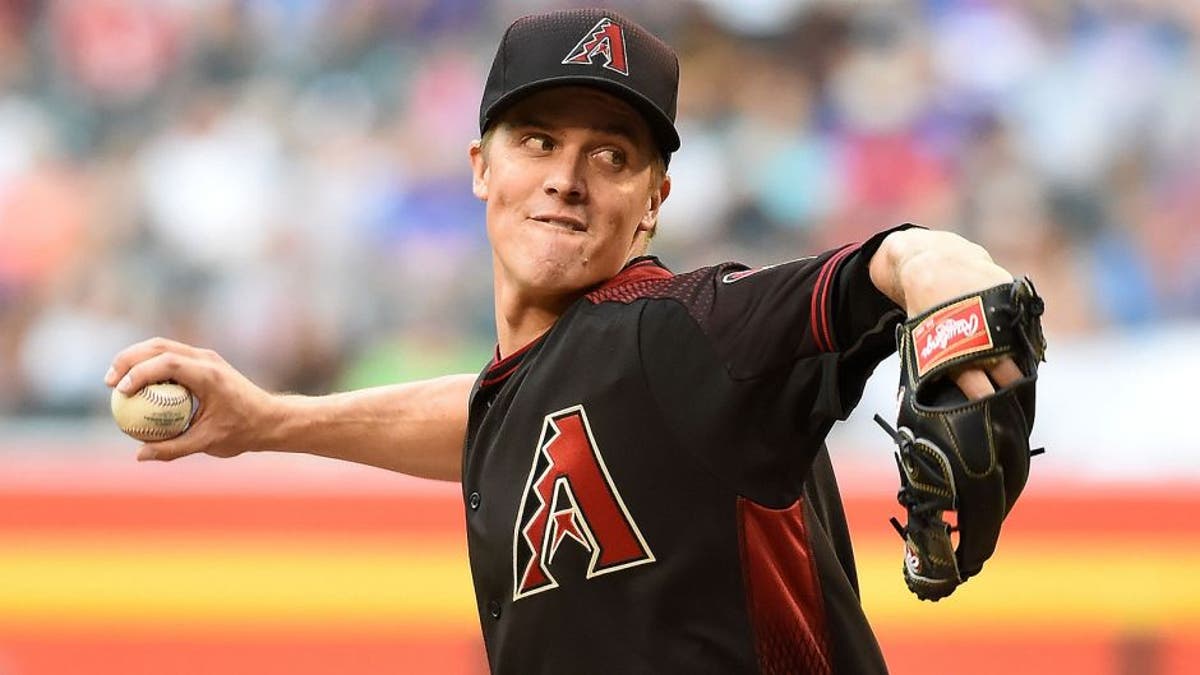
After meeting with the Giants last offseason, Zack Greinke took a walk to explore San Francisco.
No one recognized him, according to people who were in contact with him that day.
Think about that: Greinke, then a free agent, soon would receive the highest average salary of any pitcher in major-league history. Yet he went unnoticed in a city where fans should have been quite familiar with him, considering that he had spent the previous three seasons with the Giants' biggest rival, the Dodgers.
That's a problem -- a problem that both baseball and the players' union are addressing in their collective-bargaining negotiations, according to sources on both sides.
The issue isn't as sensitive in bargaining as the qualifying offer, or as meaningful as revenue sharing. But CBA talks are wide-ranging, and the two sides are giving more attention to the marketing and promotion of players than they have in the past.
Management and union officials, who already have held one bargaining session to discuss the subject, plan to continue those discussions, sources said.
The two sides actually have spent years discussing the subject, but during the last round of bargaining the conversations were only at the committee level.
This time, the talks are "at the big table," one source said.
The CBA expires Dec. 1.
Greinke, a player who does not seek attention, is perhaps not the best example of a player who needs a higher profile. But would Bryce Harper be recognized if he walked down the streets of New York? Would Mike Trout?
The answers are not necessarily "yes."
Most baseball stars remain largely regional phenomenons, even at a time when players come from Latin America, Asia and even Europe. NBA superstars such as LeBron James, on the other hand, are international sensations.
Baseball's culture historically places more value on the team name on the front of jersey than the individual name on the back. But at a time when the sport is rich in young, marketable talent, it's good business for both management and the union to make the game's stars as identifiable as possible.
Commissioner Rob Manfred supports that premise, and the union's interest in marketing and promotion is perhaps even greater than management's, sources said.
The bigger the financial pie, the more money everyone gets.
Baseball in recent years has increased its efforts to showcase talent, most notably through the "THIS" campaign, which celebrates players in television commercials and various forms of social media.
The next step, according to sources on both sides, is to figure out how to generate greater exposure for the players while protecting and compensating them fairly.
From the union's perspective, the players are the face of the game, baseball's greatest assets. The trend in sports is toward greater access; fans want to know what players are thinking, what it's like on the field in the heat of the moment. Only the players can provide that connection.
An example of how a partnership could work has occurred with "Mission October," a collaborative series by Major League Baseball Productions and FOX Sports that highlights a specific team fighting to reach the postseason each week late in the season. Players are compensated for their roles in the series, sources said.
An expanded partnership, though, would be complicated.
The two sides would need to decide the extent to which television networks could use player microphones, among other issues. Ideally, baseball also would engage its major sponsors in a more robust fashion, perhaps requiring them to use players in national campaigns.
Teams already use players for various promotional purposes ranging from children's clinics to charitable functions. But such local work, too, is subject to negotiation.
Paragraph 3.(b) of the Uniform Player's Contract in the collective-bargaining agreement covers "Baseball Promotion."
The paragraph states, in part:
"In addition to his services in connection with the actual playing of baseball, the Player agrees to cooperate with the Club and participate in any and all reasonable promotional activities of the Club and Major League Baseball ..."
The definition of "reasonable" surely will be a topic of conversation in the collective-bargaining negotiations. But like every other aspect of the discussions regarding marketing and promotion, it need not be contentious. Both sides should share the same goal -- to bring as much attention to the players as possible.
Superstars should be recognized, not unnoticed.
